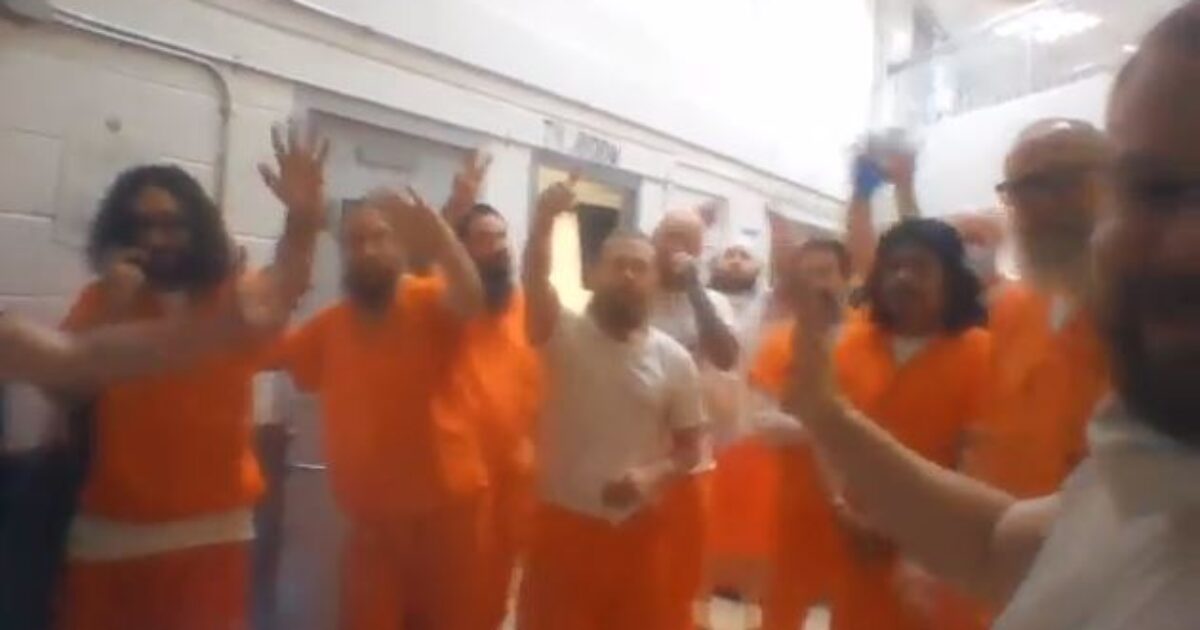Political Prisoners at the DC Gulag in Washington DC.
The Fourth Circuit’s recent ruling in Longworth v. Mansukhani shines a damning light on the systemic failures of America’s federal prison system, where vulnerable inmates face horrific abuse with no recourse. The Longworth case exposes sexual abuse and retaliation within federal facilities. It also highlights how prisoners cannot count on the government or the court’s to hold their captors accountable. The broken prison system and the broken judicial system represent a crisis that should be bipartisan and demands urgent attention.
A Vulnerable Inmate’s Nightmare
Justin Longworth, a former inmate at the Federal Correctional Institution in Butner, North Carolina (FCI Butner), alleged he was subjected to repeated sexual abuse by a female prison guard, Sherry M. Beck, from 2017 to 2018. According to his complaint, Beck, the Secretary of Facilities, used her authority to coerce Longworth into non-consensual sexual acts, including forced oral sex, groping, kissing, and biting. Longworth, who had a documented history of childhood sexual abuse and mental health issues, including bipolar disorder and PTSD, was particularly vulnerable. Beck’s abuse didn’t stop at physical acts—she allegedly manipulated him through coercion and bribery, even demanding he tattoo her initials on his body.
When Longworth finally reported the abuse, the prison retaliated against him. Prison officials, including wardens Andrew Mansukhani and Anthony T. Scarantino, allegedly punished him by firing him from his work assignment and placing him in solitary confinement. Meanwhile, Beck faced no immediate consequences until an investigation led to her termination—but no further legal or criminal action was taken. Even after her termination, Beck continued to harass Longworth with sexually explicit and threatening letters at his new facility in Petersburg, Virginia.
This case is a stark reminder of the crisis in our federal prisons, where inmates are at the mercy of those in power. Yet, Democrat politicians like Maryland Senator Chris Van Hollen seem more preoccupied with preventing the deportation of non-citizen criminal aliens to El Salvador than addressing the plight of American inmates suffering under their watch.
Senator Chris Van Hollen during his meeting with Salvadoran national Kilmar Ábrego. / Sourced from Nayib Bukele’s X account
No Accountability from the DOJ
The Longworth case is not an isolated incident but part of a broader pattern of unaddressed abuse in federal facilities. In October of 2021, when Representative Marjorie Taylor Greene exposed the horrifying conditions at the D.C. Jail (a.k.a the “D.C. Gulag”) where J6ers and hundreds of others were being held, she forced the U.S. Marshals to conduct an inspection. The inspection revealed shocking human rights violations reminiscent of a third-world country. The November 1, 2021, report documented standing human sewage in cells, water and food withheld for punitive reasons, pervasive drug use, and staff antagonizing detainees. Detainees had observable injuries with no medical records, and the Marshals caught prison staff threatening inmates who wished to cooperate with the Marshals inspections and telling the inmates to “stop snitching.” The irony is that many of the J6ers who were told not to “snitch” to the Marshals were being held pretrial and facing up to 20 years in prison for allegedly violating 18 U.S.C. 1512, a witness tampering statute. The Supreme Court found that the DOJ illegally charged the J6ers with that crime, yet their captors at the D.C. Gulag were caught red-handed in clear violation of the very same crime, and yet charges were never brought against them.
Because Rep. Greene forced the issue, D.C. Judge Royce C. Lamberth, no friend of the J6ers, had no choice but to hold the D.C. Jail Warden Wanda Patten and D.C. Department of Corrections Director Quincy Booth in civil contempt. In the same order, Lamberth ordered the DOJ to investigate, but years later, there’s no evidence the DOJ has taken action. There were no consequences for Quincy Booth, Wanda Patten, and the staff that obstructed official proceedings by tampering with witnesses during the Marshals’ inspection. This inaction mirrors the lack of accountability in Longworth’s case, where serious allegations of sexual abuse and retaliation have gone uninvestigated.
A Legal System That Protects the Government
Perhaps the most infuriating aspect of Longworth’s case is how the legal system prevented his claims from ever reaching a jury. Longworth pursued two legal avenues to seek justice: a Bivens action and a Federal Tort Claims Act (FTCA) claim. A Bivens claim allows individuals to sue federal employees directly for constitutional violations, like the Fourth and Eighth Amendment violations Longworth alleged against Beck and other officials. An FTCA claim, on the other hand, allows suits against the United States for torts (wrongful acts) committed by federal employees.
Longworth, cautiously, filed both claims to cover his bases. His Bivens suit targeted Beck for sexual assault and the other defendants for deliberate indifference, while his FTCA suit accused the U.S. government of negligence in supervising Beck. Both claims rested on the same facts: Beck’s sexual abuse and the prison’s failure to intervene. But this prudent approach backfired due to a legal trap known as the FTCA’s “judgment bar.”
The district court dismissed Longworth’s Bivens claims, finding they didn’t fit within the narrow scope of Bivens precedent, and later dismissed his FTCA claim for lack of jurisdiction, ruling that the prison official who sexual abused him wasn’t acting within the scope of her employment during the abuse. Longworth appealed the Bivens dismissal, but the Fourth Circuit dismissed the appeal entirely, citing the FTCA judgment bar (28 U.S.C. § 2676). This provision states that a judgment in an FTCA case bars any subsequent action against the employee for the same conduct. Since the FTCA claim was dismissed on the merits, Longworth’s Bivens appeal was barred—despite being filed first.
In plain English, Longworth’s claims of sexual abuse were thrown out because his lawyer made a procedural error when navigating the complicated system. The judge, fully aware of the serious allegations of sexual abuse, cover-up, and retaliation, used a technicality to prevent any accountability through the legal system. It’s as if the court said, “Sorry you were subjected to rape and torture by prison staff, and they may still be abusing others, but you filed the wrong paperwork, so we can’t help you.” This gatekeeping by judges ensures that government institutions like the Bureau of Prisons face no scrutiny, and victims like Longworth, J6ers, and thousands of other abused prisoners, are denied their day in court.
A Bipartisan Crisis Demanding Action
The Longworth case exposes three interconnected crises: a broken prison system, a DOJ that refuses to investigate, and a judicial system shields abusive government officials from recourse or accountability. These issues transcend party lines. No one—left, right, or center—should tolerate a system where inmates are sexually abused, silenced, and denied justice due to legal technicalities. The Trump administration has an opportunity to win bipartisan support by directing the DOJ to investigate federal prison abuses, starting with the D.C. Gulag. The D.C. Gulag’s human rights violations and violations of 18 U.S.C. 1512 were already well documented by the U.S. Marshals. The DOJ should be directed by President Trump to work with the J6ers, who can serve as key witnesses, to bring the perpetrators to justice and stop the abuse that occurred – and may still be occurring – within walking distance of the White House, the Capitol, and the Department of Justice Headquarters.
The post The Crisis in Federal Prisons: Justin Longworth’s Case Exposes Abuse, Cover-Ups, and a Broken Legal System appeared first on The Gateway Pundit.











